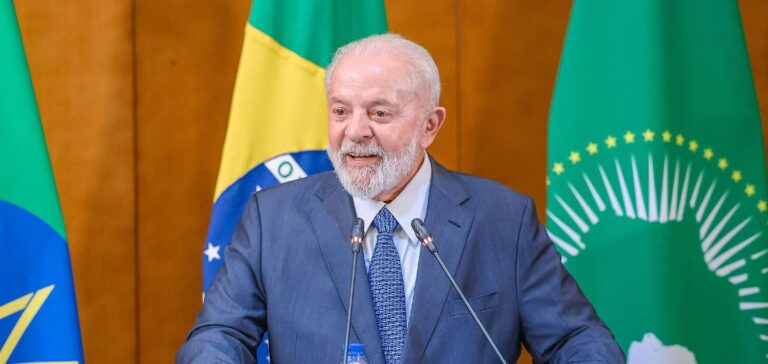The Brazilian government has announced a revision of its greenhouse gas reduction targets, now aiming for a 67% reduction in emissions by 2035 compared to 2005 levels. This new “nationally determined contribution” (NDC) was made public by the administration of President Luiz Inácio Lula da Silva in an official statement released ahead of the United Nations Climate Change Conference, COP29, taking place in Baku, Azerbaijan. This elevation in ambitions is part of Brazil’s commitment under the Paris Agreement, aiming to limit global warming to 1.5°C above pre-industrial levels.
At COP29, Brazilian Vice President Geraldo Alckmin will formalize this NDC, marking Brazil’s dedication to the fight against climate change. The country’s new targets are oriented toward annual emissions reductions, expected to reach between 850 million and 1 billion tons of CO2 by 2035, compared to 2.4 billion tons in 2005.
A commitment to climate neutrality by 2050
The government statement specifies that this new contribution covers all sectors of the economy. It also emphasizes Brazil’s commitment to achieving climate neutrality by 2050, in line with the guidelines of the Paris Agreement. This ambition represents another step in Brazil’s environmental policy, following the recent announcement of a more than 30% reduction in the rate of deforestation in the Amazon, the largest recorded decrease in the past 15 years.
Nevertheless, the Brazilian NGO Observatório do Clima, an influential civil society group focused on climate issues, has expressed reservations about the actual effectiveness of this new NDC. According to Marcio Astrini, executive secretary of Observatório do Clima, the set target does not reflect Brazil’s “fair contribution” to stabilizing the global climate. Astrini also points out the absence of key details, such as concrete measures to curb deforestation and limit fossil fuel growth.
Criticism on transparency and announced efforts
Observatório do Clima criticized the Lula administration’s climate strategy for its lack of transparency. According to the NGO, despite official announcements, the plan does not contain sufficient measures to ensure zero deforestation goals and restrict activities related to fossil fuels. The organization states that the current trajectory would not lead to net emissions below 650 million tons by 2035, contrary to the government’s promises.
Marcio Astrini also highlighted that for a country aspiring to play a leading role in the multilateral fight against global warming, it is crucial to ensure the transparent and consistent handling of such information. Brazil is also preparing to host the next COP30 in 2025, which will be held in the Amazonian city of Belém, offering the country another opportunity to demonstrate its leadership on climate issues.






















